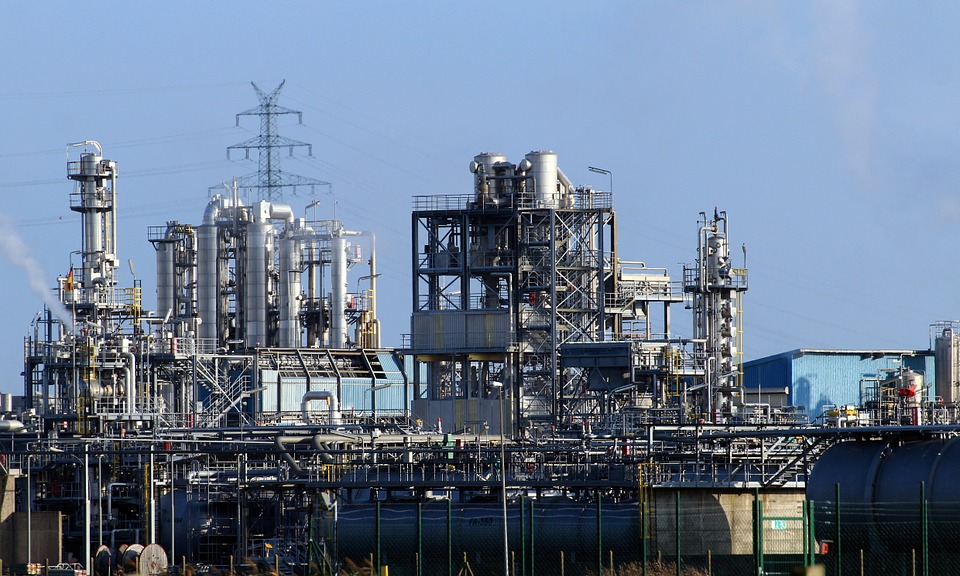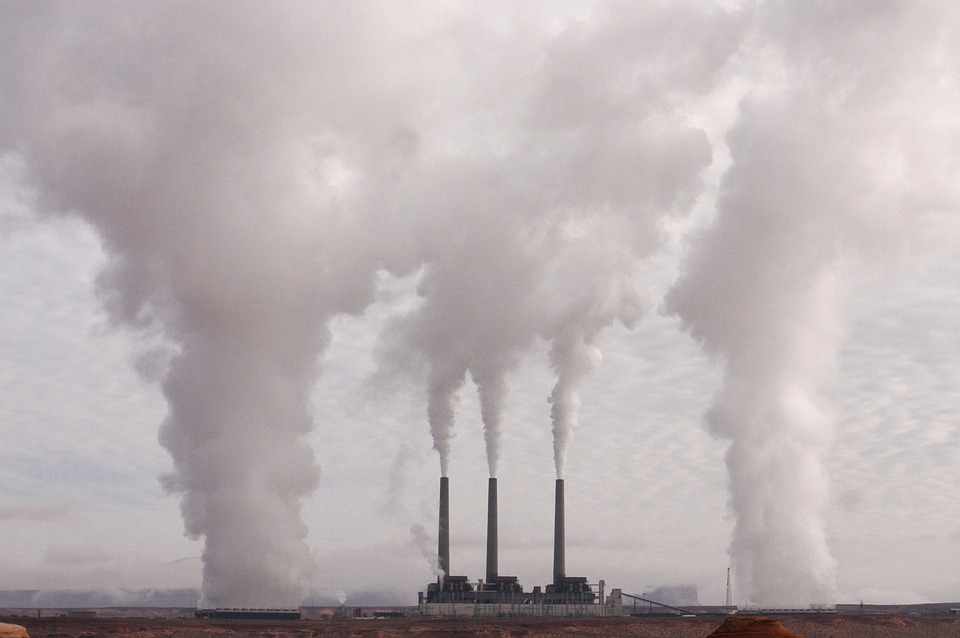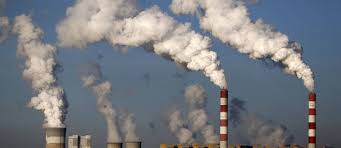- Número: 131
- Autor(es): Alfredo Marvão Pereira e Rui Marvão Pereira
- Mês: Setembro
- Ano: 2019
In this paper, we compare and contrast the environmental, macroeconomic and distributive effects of CO2 taxation with the effects of taxing a variety of air pollutants at their external costs. We do so using a multi-sector and multi-household dynamic computable general equilibrium model of the Portuguese economy. We find that a carbon tax of 114 euros per ton of CO2 is necessary to achieve the IPCC 2030 targets. It does so, however, at a high macroeconomic and distributional cost. In turn, the macroeconomic and distributional effects of taxing different pollutants at their external costs in line both qualitatively and quantitatively with the effects of the CO2 taxation.
- Número: 129
- Autor(es): Alfredo Marvão Pereira e Rui Marvão Pereira
- Mês: Agosto
- Ano: 2019
In this paper, we address the issue of how to finance the excess costs of electricity generation from currently installed renewable energy production capacity. We do so using a multi-sector and multi-household dynamic computable general equilibrium model of the Portuguese economy. We consider three issues: the effects of the existence of these excess-costs; the effects of annuitizing such costs; and, the effects of different financing mechanisms. Following the logic of the tariff deficit, we recommend the annuitizing of these excess costs. This strategy can be justified on distributional grounds. We also find that financing through carbon taxation is a better alternative than passing these excess costs through to electricity consumers in the form of higher future electricity prices. This is consistent with the idea that renewable electricity production is not an issue pertaining exclusively to the electricity market but rather a part of the national quest for decarbonization. Finally, we show that there is little reason from an environmental perspective to extend such preferential financing mechanisms to any future renewable capacity installation.
- Número: 130
- Autor(es): Aurora Teixeira e Ana Sofia Loureiro
- Mês: Setembro
- Ano: 2019
The empirical evidence on how inflows of foreign direct investment impact on income inequality and poverty of a country is scarce and produces divergent results. Moreover, most existing studies look into underdeveloped or developing countries. The aim of this study is to contribute to the empirical literature on the relationship between foreign direct investment (FDI), poverty and income inequality, focusing on a little explored context, a developed country, Portugal, characterized by having relatively high levels of inequality and poverty. Using time series estimates (cointegration), in particular, the Johansen test and Granger causality, for the period between 1973 and 2014, the results show that there is a longstanding relationship between inflows of foreign investment and the indicators of inequality and poverty.
- Número: 128
- Autor(es): Alfredo Marvão Pereir e and Rui Marvão Pereira
- Mês: Agosto
- Ano: 2019
In this paper, we compare the effects of removing harmful fossil fuel subsidies with the replacement of the energy taxation by a carbon tax in Portugal. Since energy taxes focus on the energy content of the different energy products eliminating these provisions only brings their prices in line with their energy content. On the other hand, replacing the energy tax system with a tax on the emissions content of the energy products aligns the fossil fuel prices with their emissions content. We show that while replacing the energy with a carbon tax is a policy of a magnitude about eight times as large as the removal of the harmful subsidies, the effects of emissions are twenty times larger and the adverse economic and distributional effects only about twice as large. Accordingly, replacing the energy tax with a carbon tax is a much more cost-effective way of reducing emissions.
This may suggest that focusing on the removal of harmful fossil fuel subsidies may be an environmental red herring.
- Número: 126
- Autor(es): José M. Belbute e Alfredo M. Pereira
- Mês: Agosto
- Ano: 2019
We provide reference forecasts for CO2 emissions from burning fuel fossil and cement production in Portugal based on an ARFIMA model approach and using annual data from 1950 to 2017. Our "business as usual" projections suggest a pattern of decarbonization that will cause the reduction of 3.3 Mt until 2030 and 5.1 Mt between 2030 and 2050. This scenario allows us to assess effort required by the new IPCC goals to ensure carbon neutrality by 2050. For this objective to be achieved it is necessary for emissions to be reduced by 39.6 Mt by 2050. Our results suggest that of these, only 8.4 Mt will result from the inertia of the national emissions system. The remaining reduction on emissions of 31.2 Mt of CO2 will require additional policy efforts. Accordingly, our results suggest that about 79% of the reductions necessary to achieve IPCC goals require deliberate policy efforts. Finally, the presence in the data of long memory with mean reversion suggests that policies must be persistent to ensure that these reductions in emissions are also permanent.
Abstract e Download
- Número: 127
- Autor(es): Alfredo Marvão Pereira e Rui Manuel Pereira
- Mês: Agosto
- Ano: 2019
This article examines the economic, budgetary, distributional and environmental impacts of the interaction between regulated early closure of coal-fired power plants and new energy taxation rules on fossil fuel-operated power plants using a multi-sector and multi-household dynamic general equilibrium model of the Portuguese economy. Simulation results show first that regulated early closures will lead to meaningful reductions in emissions. They will also induce significant detrimental macroeconomic and distributional effects. Second, when the new energy taxation rules are applied to the coal-operated power plants no significant environmental gains or macroeconomic or distributional losses are observed in addition to what already induced by the forced closures.
- Número: 125
- Autor(es): José Belbute e Alfredo Marvão Pereira
- Mês: Agosto
- Ano: 2019
We use an ARFIMA approach to develop reference scenario projections for CO2 emissions worldwide and for seven different regions. Our objective is to determine the magnitude of the policy efforts necessary to achieve the IPCC emissions reductions goals. For worldwide emissions, the aggregate policy effort required to achieve the 2050 goals is equivalent to 97.4% of 2010 emissions. This policy effort is frontloaded as about 60% of such efforts would have to occur by 2030. In order to achieve the IPCC target the policy efforts in the cases of the USA, EU(28), Russia, and Japan - which account for 32% of worldwide emissions, are lower and less frontloaded than the IPCC goals themselves. In the case of China, India and the ROW, which account for 68% of worldwide emissions, additional policy efforts are necessary to achieve reductions in emissions of 105.0%, 156.0% and 111.4%, of the 2010 levels, respectively. In the case of India, policy efforts are not only rather severe but also rather dramatically frontloaded, as about 74% of the policy efforts would have to occur by 2030. Our results suggest that the policies toward decarbonization must consider the specific regional characteristics of emissions. Given the differences in the inertia of emissions in the different regions a one-size fits all approach is not the best approach.
- Número: 124
- Autor(es): João Pereira dos Santos e Judite Gonçalves
- Mês: Agosto
- Ano: 2019
Increasing obesity-related problems and rising healthcare expenditures have led governments in developed countries to consider the introduction of soda taxes. We study a recent such tax, implemented in Portugal, using extremely detailed panel data from one of the two largest retailers in the country, covering the period between February 2015 and January 2018. We take advantage of the tax breakdown by sugar levels to examine how soda prices and quantities purchased reacted. For identifcation, we rely on difference-in-differences models with various vectors of fixed effects, comparing each group of products to water.
- Número: 123
- Autor(es): Rui Marvão Pereira and Alfredo Marvão Pereira
- Mês: Junho
- Ano: 2019
Renewable energy production subsidies alleviate the pressure on electricity prices associated with carbon and energy pricing policies in the process of decarbonization and electrification of the Portuguese economy. Our simulation results show that a feed in tariffs financed by a carbon tax leads to adverse macroeconomic as well as adverse and regressive distributional welfare effects. On the flip side, however, we show that use of the carbon tax revenues to finance a feed in tariff is an improvement over the simple carbon tax case along all the relevant policy dimensions. The feed in tariff mechanism when added to the carbon tax leads to better environmental outcomes at lower costs both in terms of the economic and social justice implications. The policy implications are clear. First, because of its adverse economic and distributional effects a carbon tax should not be used in isolation. The use of the revenues to finance a feed in tariff dominates the simple carbon tax case in all dimensions. Second, the search for the appropriate recycling mechanisms in addition to feed in tariffs is an issue as relevant as the carbon tax itself as it pertains to the potential reversal of the adverse effects of such a tax.
- Número: 122
- Autor(es): Ricardo Ferraz
- Mês: Junho
- Ano: 2019
A Grande Guerra (1914-1918) e a Guerra Colonial (1961-1974) foram, sem dúvida, os dois conflitos bélicos mais importantes para Portugal no seu passado recente, tendo a sua despesa militar atingido valores recorde durante esses acontecimentos. De acordo com as estimativas apresentadas no presente estudo, o Estado português terá despendido com estas guerras - a preços de hoje, e na moeda actual -, 26,5 mil milhões de euros. Deste montante, 82% terá sido gasto com a Guerra Colonial e 18% com a Grande Guerra. Ao se disponibilizarem pela primeira vez valores concretos sobre os custos dos dois principais conflitos militares em que Portugal se envolveu no século XX, espera-se oferecer um valioso contributo à História Contemporânea de Portugal e estimular outros trabalhos de investigação sobre estes temas.









